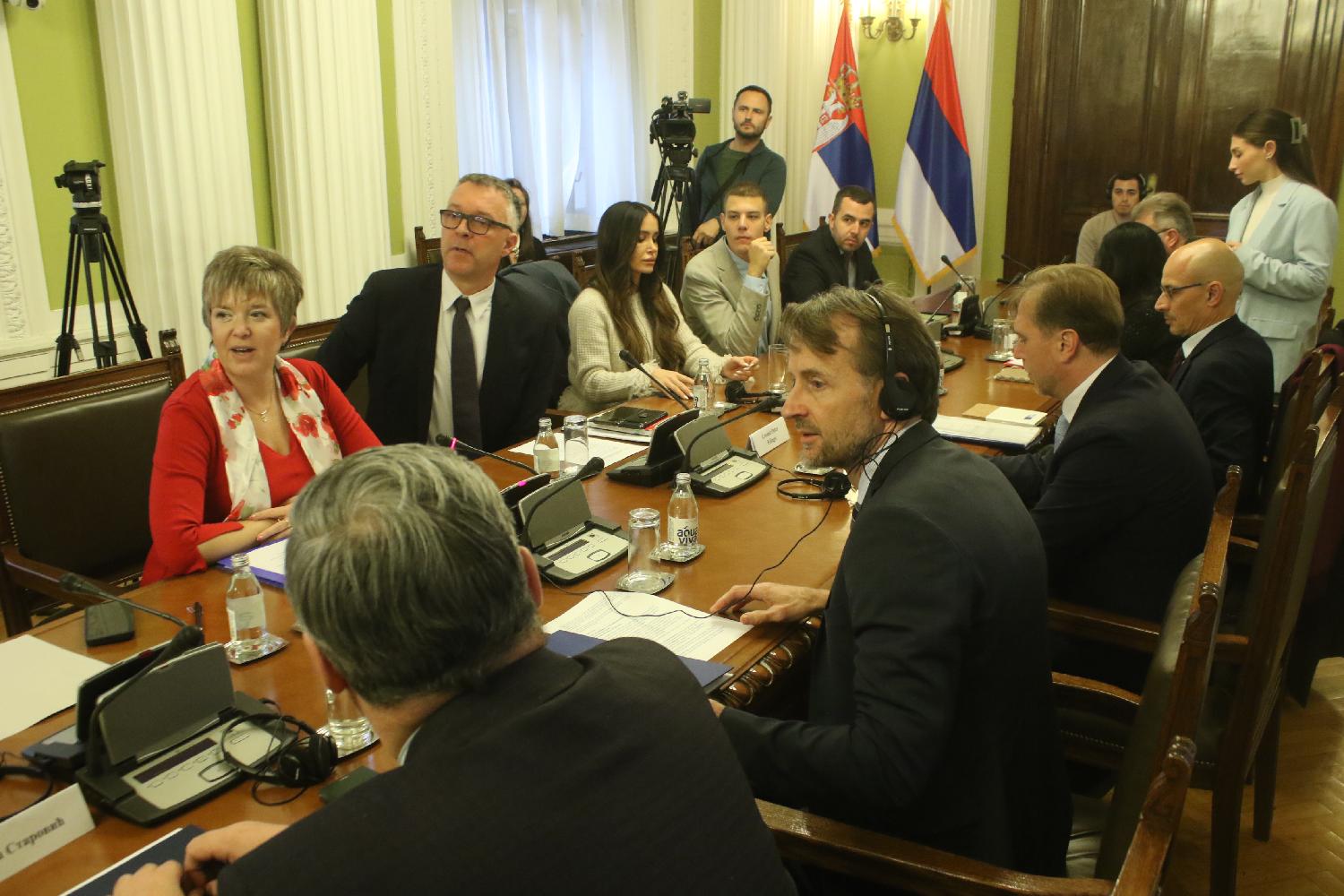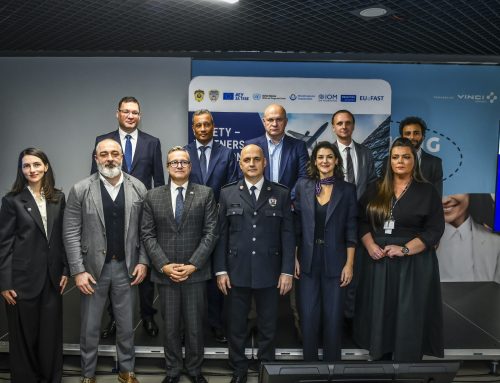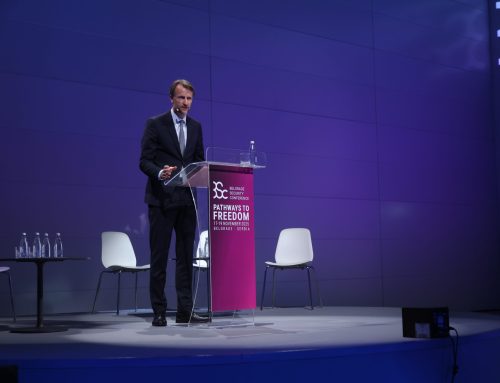Annual Report of the European Commission presented to the European Integration Committee of the National Assembly of Serbia
At a session of the European Integration Committee held on 24 November 2025, the European Commission’s 2025 Annual Report was presented.
At the very beginning of the session, the Chair of the Committee underlined that the Annual Report would also be discussed at a sitting of the National Assembly, but that this was also an opportunity to talk about the Report. She invited the EU Ambassador and the Minister for European Integration to present the Report to the Committee.
Ambassador Andreas von Beckerath highlighted the great importance that the European Union attaches to enlargement in the current geopolitical context, stressing that Serbia should make use of this enlargement momentum. Referring to the key findings of the European Commission’s 2025 Report on Serbia, he pointed out that, although the Report acknowledges certain positive steps, the pace of reforms has slowed down significantly over the past year. Credible reforms must be implemented in all areas, in particular in the rule of law, the fight against corruption and freedom of expression.
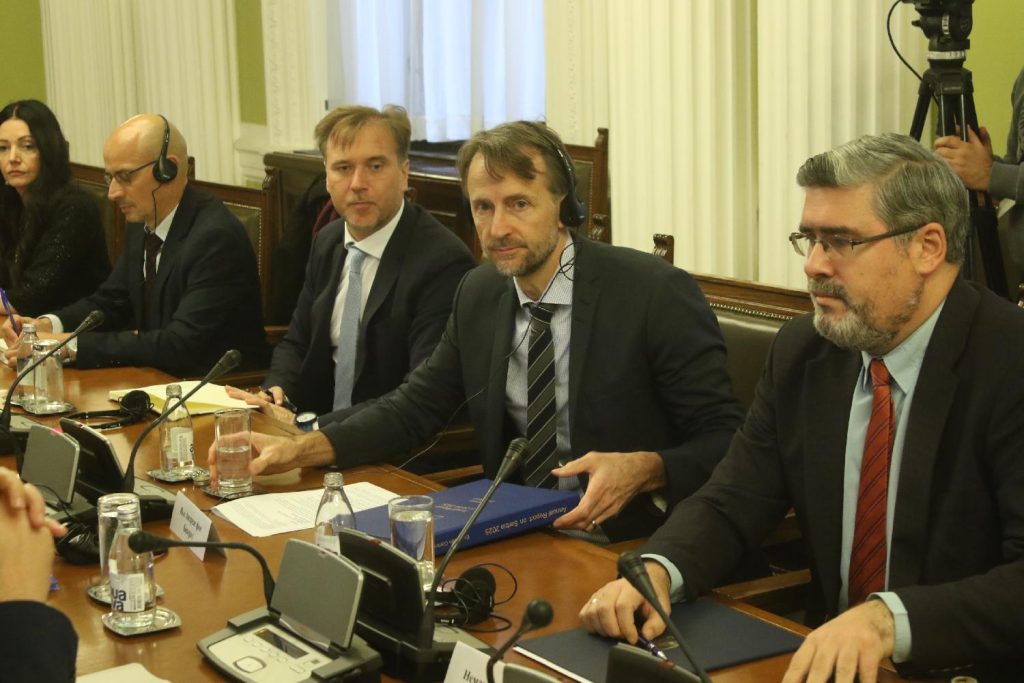
He also stressed that it is crucial to reduce polarising rhetoric in Serbia. He underlined that dialogue, bringing different stakeholders together and working constructively is the only way forward. In this regard, the Ambassador emphasised that the EU accession process represents a strong and practical platform around which stakeholders can work together in the interest of all citizens.
The Minister for European Integration, Nemanja Starović, underlined that the Report provides a comprehensive overview of the progress made by our country on its path towards EU membership. He noted that the Report carefully assesses the progress achieved over the past year, while at the same time identifying areas requiring additional attention and commitment. He added that Serbia views the Report as a roadmap for concrete actions and reforms. He stressed that the Report states that Serbia is moderately prepared in the areas of the judiciary, rule of law, fundamental rights and public administration reform. It is stated that further progress is needed in democratic institutions and in the areas of the electoral process and parliamentary development.
The Minister recalled that the National Assembly adopted the Law on Amendments to the Law on the Unified Electoral Roll, which provides for the establishment of a commission with the aim of revising the unified electoral roll. He also referred to the rule of law and media freedom, pointing out that the Report notes a mixed picture, stating that while the legal framework has improved, the practical environment for journalists has, in certain aspects, deteriorated. The Minister again underlined that Serbia has adopted a set of laws concerning media services. Serbia has once again proved to be a reliable EU partner and has taken steps to align with the EU’s visa policy, to implement reforms and to remain committed to economic growth.
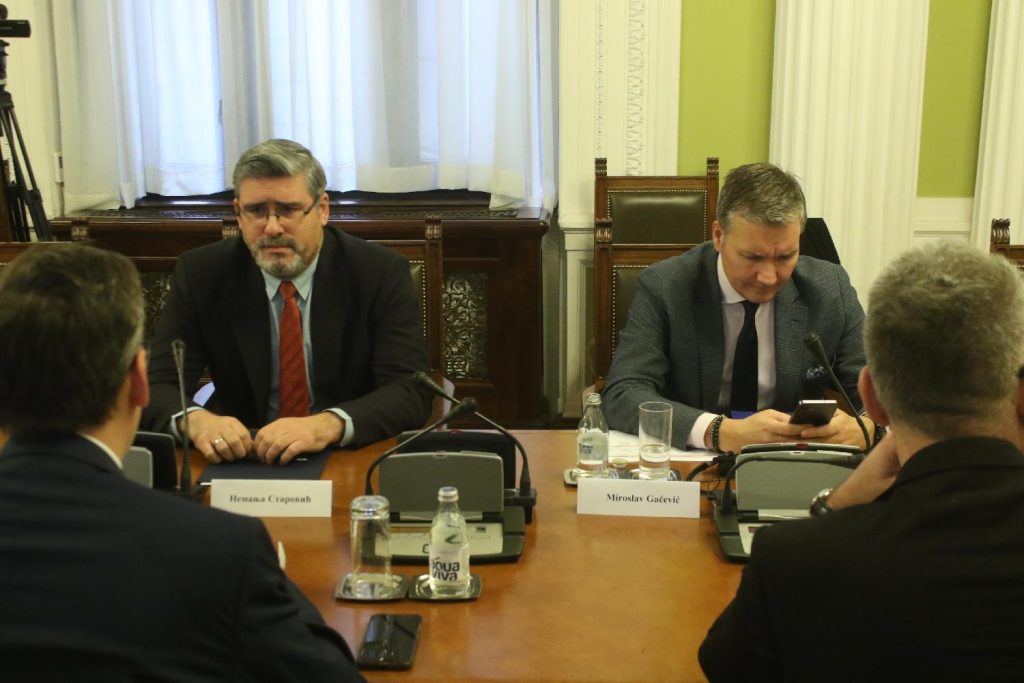
Kovač used the opportunity to point out that the Committee unanimously supports the accession of the Republic of Serbia to the European Union and is working hard to improve conditions in this area, together with the President of the National Assembly, Ana Brnabić. She recalled that, at the start of the current legislature, the following goals were agreed: strengthening parliamentary diplomacy and establishing a Working Group for the Improvement of Electoral Processes, in which the non-governmental sector also participated. She also referred to the criticism of the election of members of the REM Council, stressing that no one from the parliamentary majority in the National Assembly is trying to block this process and that this process is ongoing.
Kovač agreed that the National Assembly lacks an annual work plan and expressed satisfaction that opposition MPs had returned to the plenary, so that the discussion in the National Assembly would be more credible. She also took the opportunity to point out that the part of the Report relating to national minorities is incomplete and that Serbia’s legal framework is one of the best when it comes to legislation on the rights of national minorities.

Members of the Committee discussed and commented on the Commission’s Report, to which the Ambassador responded.
At the end of the session, Kovač invited the members of the Committee to sign the Draft Conclusions on the European Commission’s 2025 Annual Report, so that they could be submitted to the National Assembly for further debate.
The session was chaired by the Chair of the European Integration Committee, Elvira Kovač, and attended by the members and deputy members of the Committee: Milan Radin, Nikola Lazić, Ana Miljanić, Goran Milić, Dubravka Filipovski, Branislav Josifović, Sanja Džajić, Dunja Simonović Bratić, Zagorka Aleksić, Dr Ana Jakovljević and Robert Kozma.
Photo: Fonet

